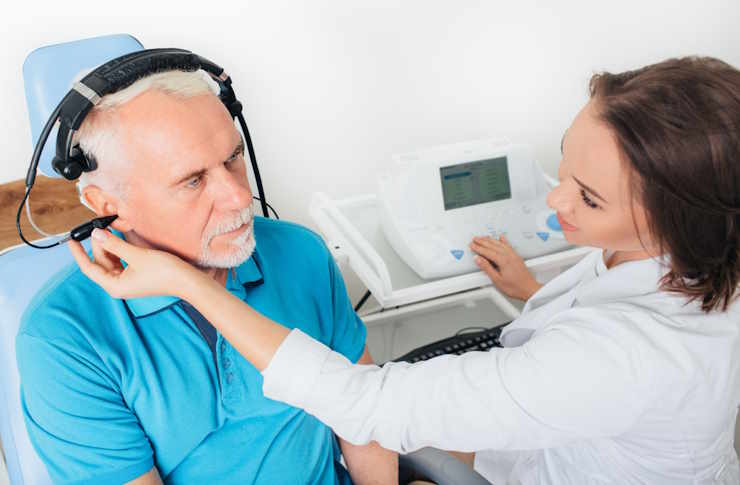Recognizing Heart Failure: Critical Warning Signs You Must Know
Heart failure affects millions of Americans, yet many people miss the crucial early warning signs that could save their lives. Understanding these symptoms and seeking prompt treatment can significantly improve outcomes and quality of life. This comprehensive guide explores the key indicators of heart failure, particularly in elderly patients, and explains why immediate medical attention is essential when these signs appear.

What Are the Early Signs of Congestive Heart Failure?
Congestive heart failure develops gradually, often making early symptoms easy to dismiss as normal aging or minor health issues. The most common early signs include persistent fatigue that doesn’t improve with rest, unexplained shortness of breath during routine activities, and swelling in the legs, ankles, or feet. Many patients also experience a persistent cough that worsens when lying down, often accompanied by white or pink phlegm.
Weight gain is another critical early indicator, particularly when it occurs rapidly over a few days. This happens because the heart struggles to pump blood effectively, causing fluid to accumulate in the body’s tissues. Sleep disturbances, including the need to sleep with multiple pillows or waking up gasping for air, are also common early warning signs that shouldn’t be ignored.
Warning Signs of Heart Failure in Elderly Patients
Elderly individuals face unique challenges in recognizing heart failure symptoms, as these signs often overlap with other age-related conditions. In older adults, confusion or difficulty concentrating can be early indicators of heart failure, as reduced blood flow affects brain function. Loss of appetite and nausea may also occur more frequently in elderly patients compared to younger individuals.
Senior patients might experience more subtle breathing difficulties, such as feeling short of breath when talking or during minimal physical activity like walking to the mailbox. Additionally, elderly individuals may have a higher tolerance for discomfort, leading them to dismiss symptoms as “just getting older.” Family members and caregivers should watch for changes in energy levels, increased difficulty with daily activities, and any sudden changes in mental clarity or mood.
Signs of Heart Failure You Shouldn’t Ignore
Certain heart failure symptoms require immediate medical attention and should never be overlooked. Severe shortness of breath, especially when occurring suddenly or at rest, indicates that the condition may be progressing rapidly. Chest pain or pressure, particularly when combined with other symptoms, warrants emergency medical care.
Rapid or irregular heartbeat, severe fatigue that prevents normal daily activities, and fainting or near-fainting episodes are all serious warning signs. Additionally, if swelling extends beyond the lower extremities to include the abdomen, hands, or face, this suggests advanced fluid retention requiring urgent treatment. Any sudden weight gain of three or more pounds in a day or five pounds in a week should prompt immediate medical consultation.
Understanding Heart Failure Treatment Options
Modern heart failure treatment typically involves a comprehensive approach combining medications, lifestyle modifications, and sometimes medical devices or surgical interventions. Common medications include ACE inhibitors, beta-blockers, and diuretics, which help the heart pump more efficiently and reduce fluid buildup. Lifestyle changes such as dietary modifications, regular exercise as tolerated, and weight management play crucial roles in treatment success.
For advanced cases, treatment options may include implantable devices like pacemakers or defibrillators, and in severe situations, heart transplantation might be considered. The key to effective treatment lies in early detection and prompt medical intervention, which is why recognizing warning signs is so critical for positive outcomes.
When to Seek Medical Care in Your Area
If you notice any combination of heart failure symptoms, don’t wait to contact your healthcare provider. Many communities offer specialized heart failure clinics and cardiology services that can provide comprehensive evaluation and treatment. Local hospitals often have heart failure management programs designed to help patients navigate their condition effectively.
Emergency medical care should be sought immediately for severe symptoms such as extreme difficulty breathing, chest pain, or loss of consciousness. Many areas also offer telehealth services for initial consultations, making it easier to discuss concerns with healthcare professionals when transportation or mobility is challenging.
The Importance of Early Detection and Treatment
Recognizing heart failure symptoms early dramatically improves treatment outcomes and quality of life. When caught in its early stages, heart failure progression can often be slowed or even reversed with appropriate medical care and lifestyle modifications. Regular monitoring and follow-up care help prevent hospitalizations and complications.
Early treatment also provides patients with more therapeutic options and better long-term prognosis. Healthcare providers can work with patients to develop personalized treatment plans that address individual needs and circumstances, leading to more effective management of the condition.
Understanding and recognizing the warning signs of heart failure can be life-saving, particularly for elderly individuals who may be at higher risk. By staying vigilant for early symptoms and seeking prompt medical attention when warning signs appear, patients can access effective treatments that significantly improve their health outcomes and overall quality of life.
This article is for informational purposes only and should not be considered medical advice. Please consult a qualified healthcare professional for personalized guidance and treatment.




